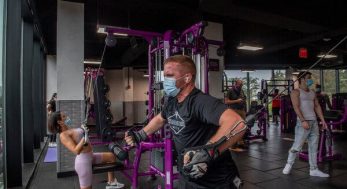
Photo posed by model (credit: digitalskillet1/Adobe Stock)
Black and ethnic minority social workers are over-represented in fitness to practice cases in England but face adjudication panels that are disproportionately white compared with the profession.
Social Work England has vowed to tackle both issues, including by considering the use of decision-making processes that are blind to ethnicity, and using different recruitment methods to secure more representative fitness to practise panels.
The issue of disproportionate representation of Black and ethnic minority practitioners is longstanding, with former regulator the General Social Care Council reporting that Black practitioners were significantly over-represented in the referrals it received from 2004-11.
In an interview with Community Care, Social Work England’s executive director for fitness to practise, Jonathan Dillon, said that it was clear from looking at the referrals it received that “social workers from minority backgrounds are disproportionately represented in our caseload”.
Related articles
He said the organisation, which took over responsibility for regulating the profession in December 2019, did not have precise data on this, nor did it have evidence on whether Black and ethnic minority practitioners were treated differently within the fitness to practice system from white counterparts.
“That’s a different question that needs a different assessment that looks at the quality of our decision-making. Other regulators have done some really good work piloting blind decision-making where the identifiers are removed.”
He added: “This is a really important issue for us and something that we are absolutely committed to work on in fitness to practice and at all levels of the organisation. Crucially, we need to get to the point that we can evidence that our regulatory processes do not impact disproportionately on people from a minority background. We are still in the process of developing a system that allows us to do that.”
Under-representation on fitness panels
The issue is particularly significant as figures obtained under the Freedom of Information seen by Community Care show that 80% of independent adjudicators sitting on the regulator’s fitness to practice panels are white, with 18% from Black, Asian, mixed-race or other backgrounds.
While this is above that of the general population, it falls short of the representation of non-white practitioners within the profession in England, which is 22% for children’s practitioners and 25% in adults’ services. The gap was bigger for Black staff, who represent 12% of children’s practitioners and 15% of adult social workers, but just 5% of panel members. The data follows news that staff from minority groups – and Black staff in particular – were significantly under-represented within Social Work England.
Dillon said that, in recruiting its bank of adjudicators, Social Work England had, on the advice of a recruitment company, sought to base decisions on expertise, rather than experience, in order to avoid replicating existing inequalities.
However, he said: “That was our strategy but it still delivered to us the figures that you’ve seen which is an over representation of white British adjudicators. What we did last year didn’t have the impact we intended. I do believe that the role of adjudicator should be representative of those who we seek to regulate. We will look at this and hope to drive through a process that will deliver a diverse group of panellists.”
Need to shed light on potential bias
He said tackling this was likely to involve increasing the number of panellists it used, as currently it had only just enough to support current levels of work.
In devising a new recruitment approach, he said that the regulator would consult its advisory forum – which consists of social workers, people who have used services, students and academics – and staff representative bodies such as the British Association of Social Workers (BASW), Unison and Unite.
In response, Lien Watts, head of advice & representation at BASW, said: “We have long since been aware that colleagues from BAME backgrounds are over-represented in employment related issues including referrals to the regulatory bodies. The problem is that no accurate data has ever been collected to formally evidence this.
“It is true that sometimes members/registrants do not wish to disclose their personal attributes especially around race and ethnicity and also sometimes other ‘protected characteristics’. Nevertheless, empirical intelligence should not be ignored and BASW would support a formal process of collating data around this issue, which could potentially shed more light on any potential bias in the sector.”

